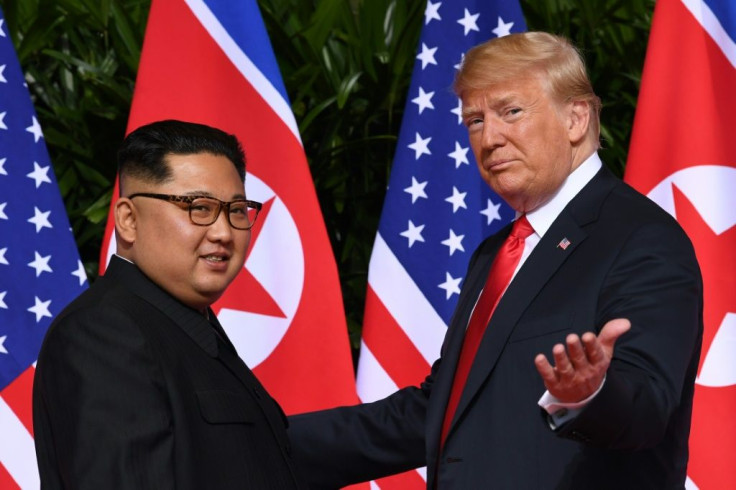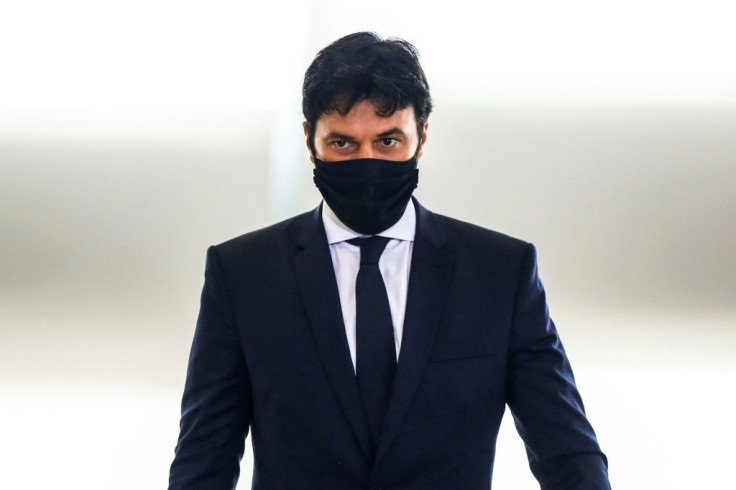Bolsonaro Revives Communications Ministry In Make-over
As even Brazilian President Jair Bolsonaro himself admits, communications has not exactly been his administration's strong suit lately.
From downplaying the new coronavirus as a "little flu" to flinging expletives and insults in a cabinet meeting that was later made public, the far-right leader has generated a long list of awkward sound bites.
That has exacerbated the trio of crises he is facing: public-health, economic and political.
Enter his newly created communications ministry and the charismatic, handsome young lawmaker tapped to lead it, Fabio Faria.
Faria, a 42-year-old lawmaker and son-in-law of a TV mogul, is about as different as possible from Bolsonaro when it comes to communication style.
While the far-right president, sometimes called a "Tropical Trump," is blunt, bellicose and uncompromising, Faria took office last week calling to "pacify" the country and proposing a "patriotic armistice" to get Brazil through the coronavirus pandemic, which has infected and killed more people here than any other nation except the United States.
The "new" ministry in fact recreates a portfolio that had been absorbed into the science and technology ministry in 2016.
Its revival comes as Bolsonaro is battling on multiple fronts.
A year and a half into his presidency, there is growing speculation about whether he will survive to the end of his four-year term.

Besides the political cost of the pandemic and the record-shattering 9.1-percent annual recession the IMF predicts it will bring, the president is also locked in escalating struggles with Congress and the Supreme Court.
He faces a series of investigations targeting him and his inner circle, and some 30 impeachment petitions in Congress.
His rising disapproval rating -- 44 percent, in one recent poll -- may also be linked to his bitter relationship with much of what he calls the "fake news" media.
But Bolsonaro appears to have decided it is time to make nice with the other branches of government and the press.
Communications "is an area that left a lot to be desired," he said in announcing the new ministry two weeks ago.
"The information war is very important."
Bolsonaro has since toned down his rhetoric.
But Faria will not have an easy job giving the administration's image a make-over.

For one thing, he enters a government that has so far been known more for polemics than public relations.
Exhibit A is the so-called "hate cabinet," a group of top officials accused of spreading incendiary messages against Bolsonaro's opponents on social media.
Reportedly led by Bolsonaro's son Carlos, the group is under investigation for allegedly running fake-news campaigns.
"President Bolsonaro is keen to improve his image and his relations with the other branches of government," political consultant Andre Rosa told AFP.
"A charismatic figure like Fabio Faria is reassuring to Congress."
Not everyone sees it that way, though.
"The propaganda ministry was just relaunched," tweeted former justice minister Sergio Moro, who quit in April with a bombshell accusation that Bolsonaro had improperly interfered in federal police investigations.
Faria also brings valuable connections.
He is married to the daughter of Silvio Santos, the tycoon behind SBT, one of Brazil's biggest TV networks.
And he is a member of the so-called "Centrao," a block of 200 centrist lawmakers.
Lately, Bolsonaro has been aggressively courting the "Centrao," whose votes could be decisive if he is impeached.
Faria's job will also include overseeing a touchy tender next year for Brazil's 5G network, which is bringing pressure from the United States not to award the job to China's Huawei.
Other roles include allocating TV broadcast licenses and managing the administration's advertising budget.
Bolsonaro has repeatedly threatened media organizations he perceives as critical that he will cut that money.
He regularly gives interviews to Faria's father-in-law's network and TV Record, a network owned by a popular Evangelical pastor, but snubs TV Globo, the country's biggest broadcaster.
"Bolsonaro clearly wants to cultivate a closer relationship with certain media. It's no coincidence the new minister is the son-in-law of one of the country's biggest communications moguls," said Fernando Nogueira, a public administration specialist.
But the National Journalists' Federation accused the new minister of a conflict of interest.
© Copyright AFP 2024. All rights reserved.




















